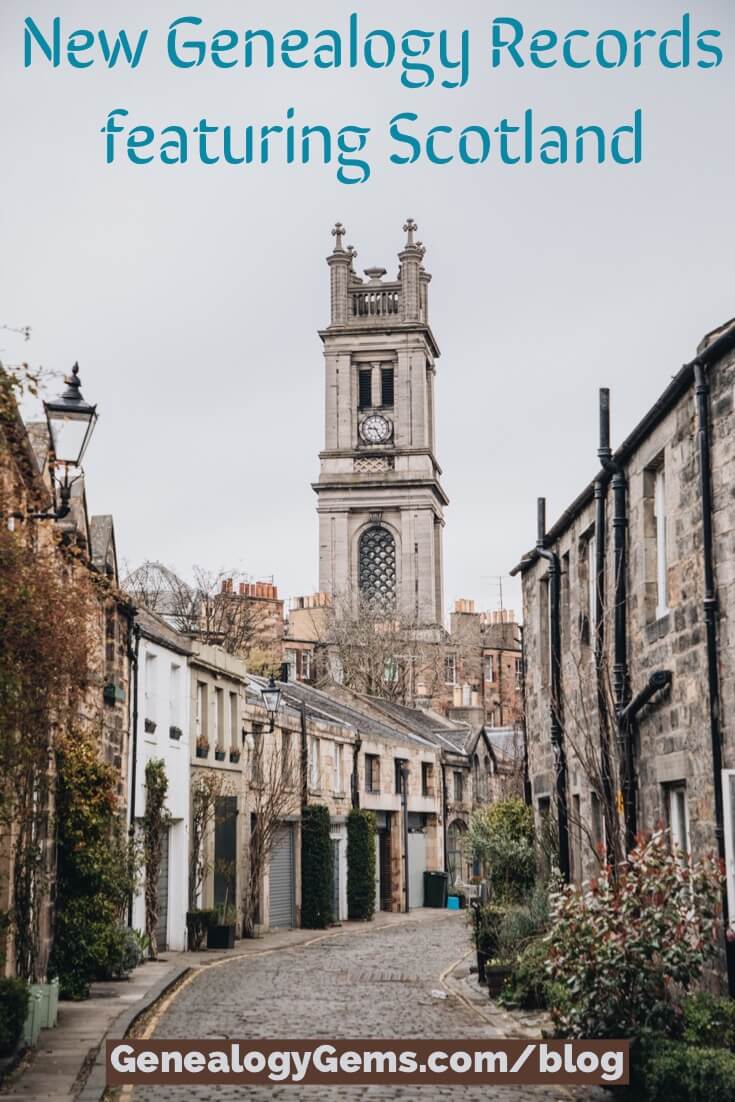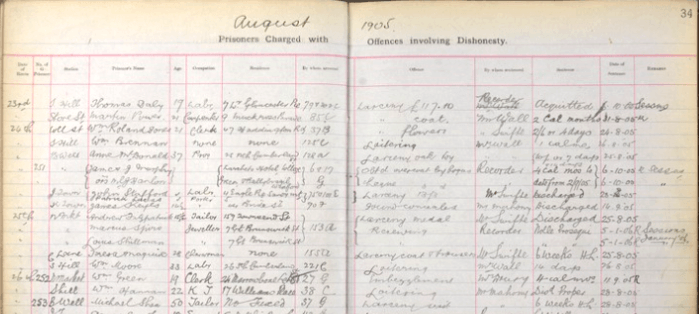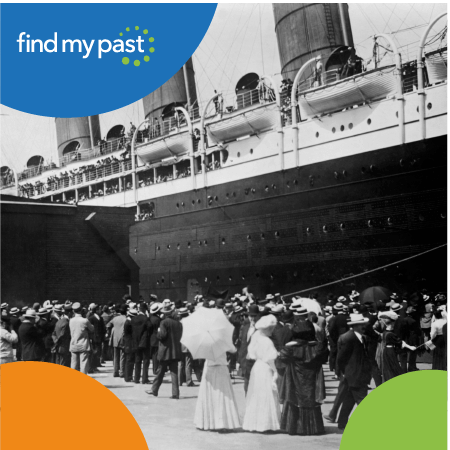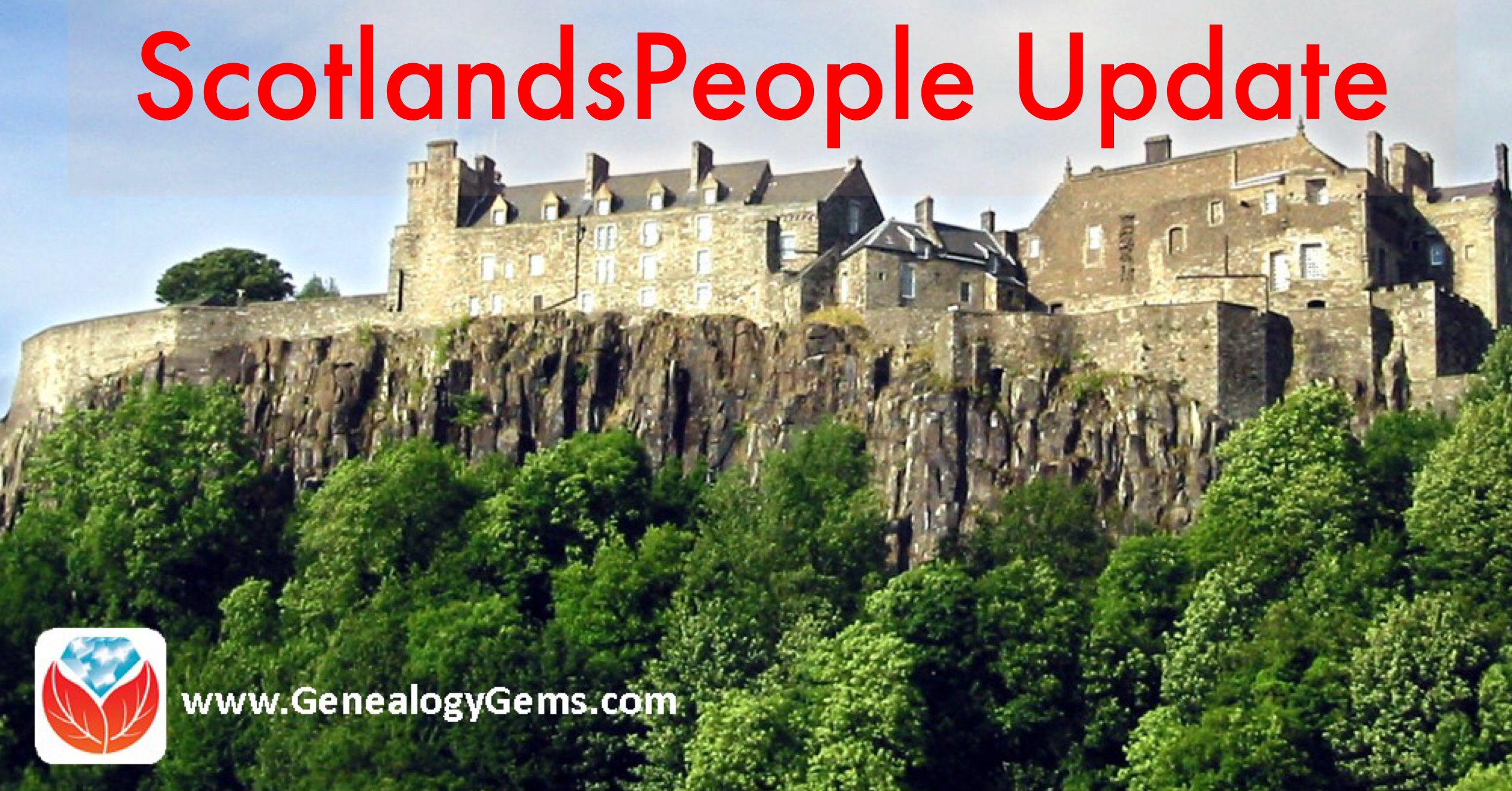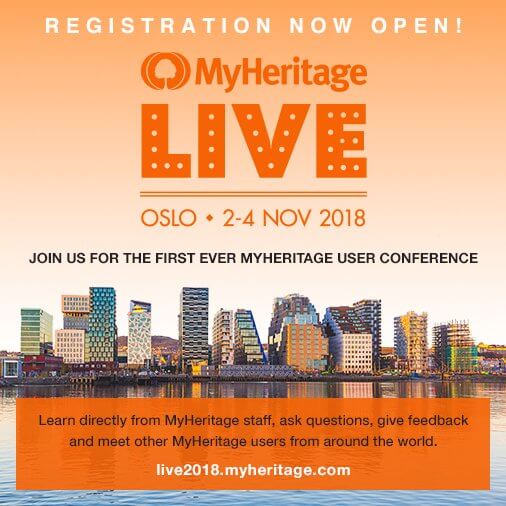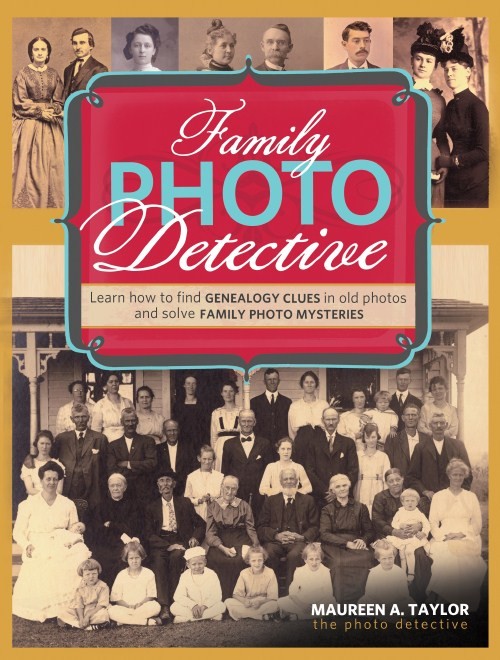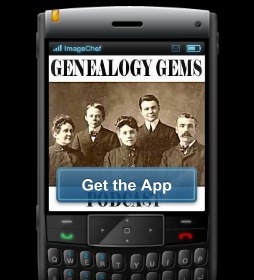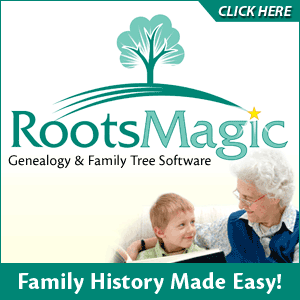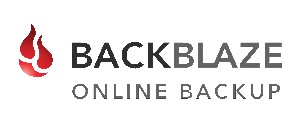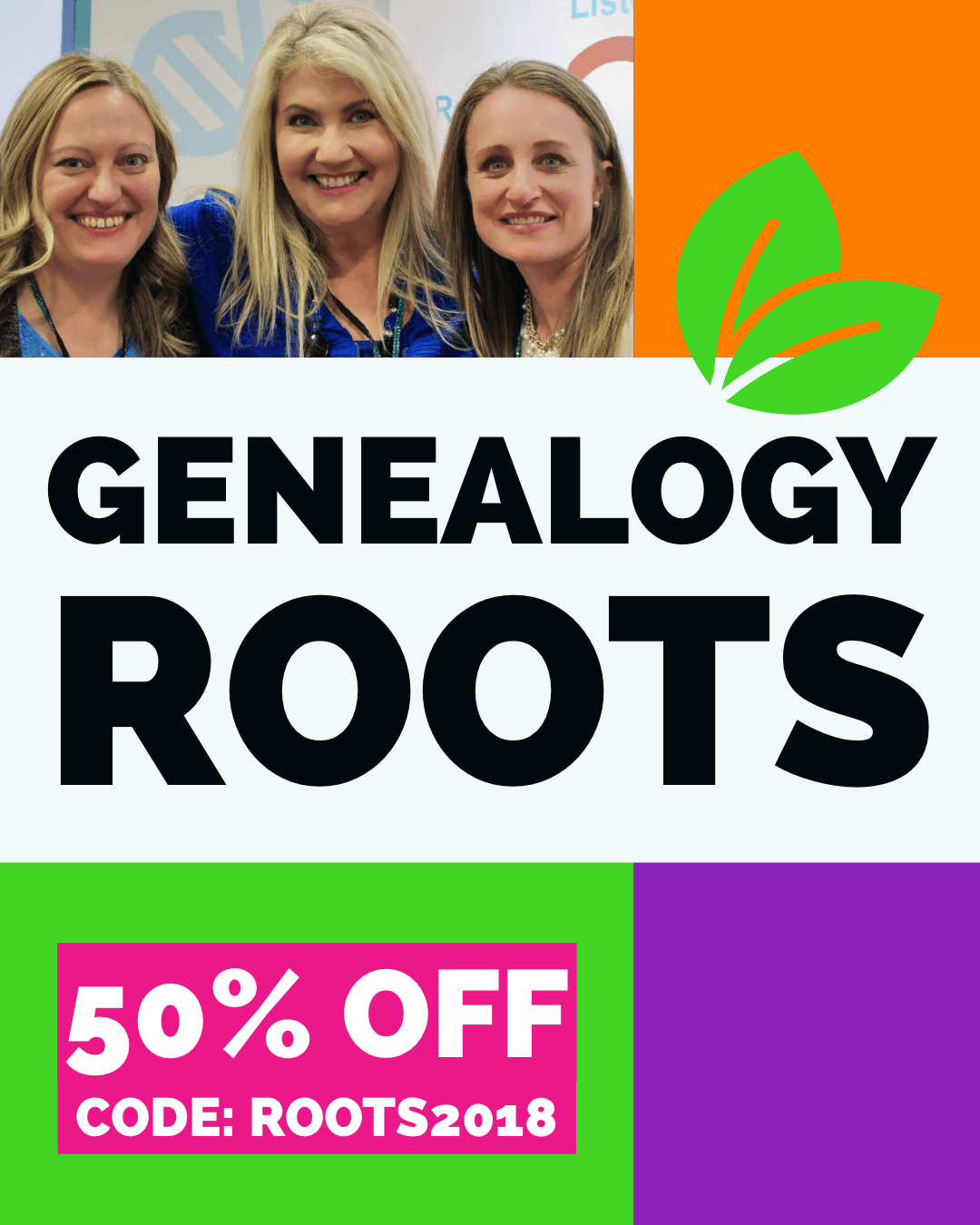Blog

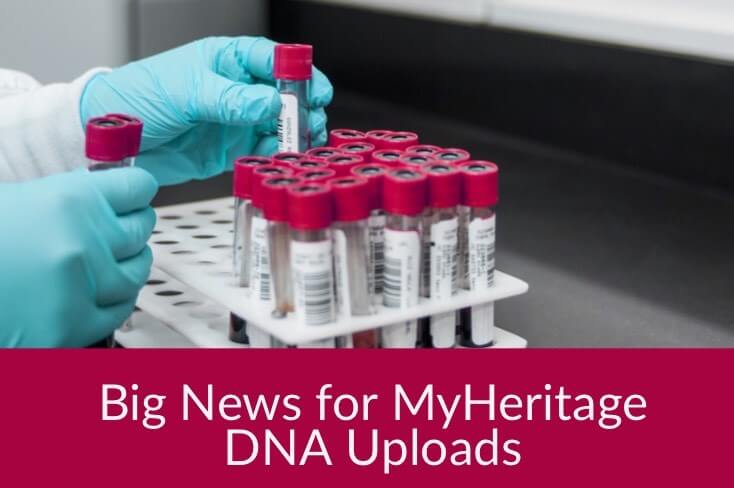
2 Updates to MyHeritage DNA Upload You Need to Know
Since 2016, MyHeritage DNA has offered the ability to transfer your DNA data from other DNA companies for free, and now they’ve expanded that offering to include Living DNA and 23andMe v5. With this news comes additional changes to their free upload offerings, so get your data transferred now to take advantage of all their tools.
Our friends at MyHeritage.com, one of the Genealogy Giants and a sponsor of the free Genealogy Gems Podcast, recently made the announcements we are sharing below.
MyHeritage DNA news you can use
1. Transfer your DNA results from Living DNA and 23andMe v5.
“We’re happy to announce another industry first from MyHeritage! We now support the upload of 23andMe v5 and Living DNA data files, in addition to supporting data uploads from all major DNA testing services, including Ancestry, 23andMe (prior to V5) and Family Tree DNA (Family Finder).
Since 2016, MyHeritage has allowed users who have already tested their DNA to upload their DNA data from Ancestry, 23andMe and Family Tree DNA. They receive DNA Matches and ethnicity estimates on MyHeritage for free. Our free upload service is a unique benefit not offered by any of these other companies. However, previously MyHeritage did not support the upload of tests based on the chip called GSA (Global Screening Array), now being used by 23andMe (v5), and by Living DNA. Recent improvements to our DNA algorithms now allow us to support DNA data processed on GSA chips, and so we now support uploads of 23andMe v5 and Living DNA data files.
Uploading your DNA data to MyHeritage is fast and simple. For users that upload now, we offer full access to DNA Matching, Ethnicity Estimates, our industry-leading chromosome browser, and more, for FREE.”
Click below to upload your DNA now for FREE!
The announcement continues:
“If you manage additional DNA kits for some of your relatives, and you have their permission, upload their DNA data too, and MyHeritage will let you associate the data with the respective individuals on your family tree. DNA data uploaded to MyHeritage is completely private and secure. Only you can see the DNA data you upload.”
2. Upcoming Changes to Tools Access
The announcement goes on to discuss a few changes you can expect with their free upload service:
“As of December 1, 2018, our policy regarding DNA uploads will change: DNA Matching will remain free for uploaded DNA data, but unlocking additional DNA features (for example, ethnicity estimate, chromosome browser, and some others) will require an extra payment for DNA files uploaded after this date. We will announce the full details of the new policy once it is finalized, closer to December 1st. All DNA data that was uploaded to MyHeritage in the past, and all DNA data that is uploaded now and prior to December 1, 2018, will continue to enjoy full access to all DNA features for free. These uploads will be grandfathered in and will remain free.
So, don’t delay, and upload your DNA data to MyHeritage now, while all the DNA features are free (and they will remain free for you). If you have tested with 23andMe (any versions including v5) or Living DNA, you’re in luck, and you can now upload this data to MyHeritage too. You can also upload DNA data from Ancestry and Family Tree DNA’s Family Finder test. Instructions for exporting your data and uploading it to MyHeritage are provided on our upload page.”

Lacey Cooke
Lacey has been working with Genealogy Gems since the company’s inception in 2007. Now, as the full-time manager of Genealogy Gems, she creates the free weekly newsletter, writes blogs, coordinates live events, and collaborates on new product development. No stranger to working with dead people, Lacey holds a degree in Forensic Anthropology, and is passionate about criminal justice and investigative techniques. She is the proud dog mom of Renly the corgi.
Disclosure: This article contains affiliate links and Genealogy Gems will be compensated if you make a purchase after clicking on these links (at no additional cost to you). Thank you for supporting Genealogy Gems!
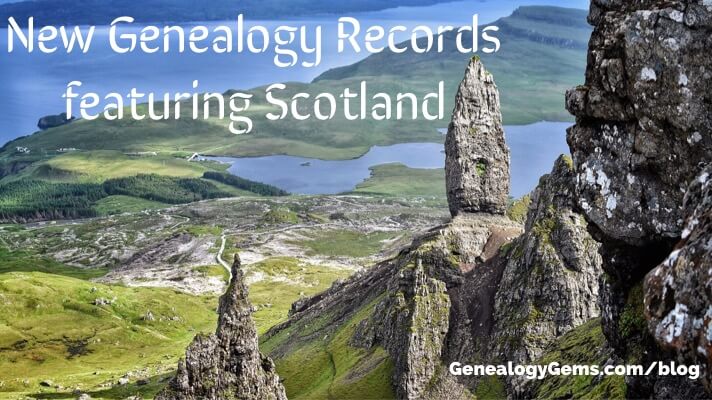
New! Scotland Genealogy Records Online
Five new Scotland genealogy record collections are online at Findmypast. Also: Irish police registers; records from Wiltshire and Westmorland, England; and digitized British and Irish newspapers. Enjoy exploring your British Isles ancestry!
Featured collection: Scotland genealogy records
Check out these five collections for your Scottish ancestors dating back to the 1760s. They’re on subscription website giant Findmypast.com, along with the other records featured in this article. (Read more about Findmypast and what makes it one of our Genealogy Giants.)
Scotland, Edinburgh Temperance Pledges 1886-1908. “Did your Scottish ancestor sign a temperance pledge between 1886 and 1908? These temperance pledges were introduced by the United Presbyterian Church and originally called the Band of Hope Register. The index records names, birth years, addresses and includes the names and ages of numerous children who signed the pledge.”
I haven’t received any emails or notifications about my membership. What’s going on?
In your iTunes LIBRARY, on the line where the Genealogy Gems Podcast is listed click the GET ALL button. This will download all the past episodes to iTunes on your computer, to be listened to at your convenience.
Downloading will take several minutes. You will see a little spinning orange circle to the left of the podcast name as it downloads. Once the episode is downloaded the text will turn from gray to black. Double click the episode and it will start to play after a moment or two.
Scotland, Berwickshire, Ladykirk Heads of Household 1811. “Discover your Scottish ancestors from Ladykirk in Berkshire. This early census recorded the names of the heads of the household in Ladykirk in 1811 as well as information pertaining to their family and other members of their household. The index has been transcribed by the Scottish Genealogy Society. The original list came from the Kirk Session Records for Ladykirk.”
Scotland, Edinburgh St Cuthbert’s Census 1790. “Explore your Scottish ancestry with the 1790 census of the parish of St Cuthbert’s in Edinburgh. The index has been transcribed by the Scottish Genealogy Society. The original list came from the Kirk Session Records for Ladykirk. This early Scottish census listed the names of each of the head of the household and within each family unit the number of parents, children, lodgers, and servants. Then each category was separated into male and female.”
Scotland, Perthshire, Inhabitants of the Burgh of Perth 1766. “Discover your Scottish ancestry with this list of inhabitants of the Burgh of Perth in 1766. The inhabitants list was taken by the magistrates on 19 March 1766 and the following days. This early census recorded the names of the heads of the household and then noted certain facts about the others in the house; such as age, occupation or religion.”
Scotland, Shetland, Tingwall List of Inhabitants 1785. “Discover your Scottish ancestors lives in the Shetland Islands! Search this list of inhabitants of the parish of Tingwall. This early census will reveal a combination of your ancestor’s age, residence and the number of other people residing in their household.”
New Irish genealogy records online
Ireland, Dublin Metropolitan Police Prisoners Books 1905-1908 and 1911-1918. “The Dublin Metropolitan Police prisoners books cover the year ranges of 1905 to 1908 and 1911 to 1918. These valuable records provide great insight into social and political life in Dublin during periods of great upheaval, including the start of the First World War and the Easter Rising. The records will provide useful information for those interested in genealogy, criminology, and family history.”
“Each record includes both a transcript and an image of the original document. The entries are handwritten and include the details of daily charge sheets. Each volume contains an index of prisoners with references to the pages containing details of the charge. The volumes contain a wide range of alleged crimes—from murder to breaking glass. Additionally, the age range represented by the accused perpetrators is equally vast—from eight to eighty. Of note, a new series of offenses were introduced following the passage of the Defense of the Realm Act on 8 August 1914. These new offenses were often used against political activists.”
Tip: To view original images, click on the link in your search result under “Record Source.” As shown in the example below for an entry for Michael Shea, first copy the text within the double quotations (it begins with https) and paste it into a new window in your web browser. This will take you to a digitized volume. Open the page viewer and go to the page and line number mentioned in the search result (shown below).
Ireland, Dublin Metropolitan Police general register 1837-1925. “Discover your ancestor in the Dublin Metropolitan Police’s general registers. The records pertain to recruitment and transfers within the police force from 1837 to 1925. While the register was used up until 1975, due to data protection reasons, only the entries up to 1925 have been digitized and made available.”
“The general register recorded both biographical and professional details of the men in the force, including: warrant number, name, age, height, trade or occupation, county, parish, post town, previous public service, by whom recommended, divisions attached to, service details (dates, rank, promotions), good service pay, date and cause of removal from the force, reappointment details, and general observations. From 1858 onwards, religion was added as well.”
England genealogy records now online
Wiltshire registers & records. This collection is currently comprised of the Quarter Sessions Great Rolls for the County of Wiltshire. “The majority of this volume comprises extracts from the quarter sessions. Appendixes include a Wiltshire will, Wiltshire wages in the seventeenth century, transcription of petition of John Dicke, and autograph letters.”
Westmorland registers & records. Three local publications comprise this collection:
- Grasmere: the Church, the Churchyard, Rushbearing, Dove Cottage — By George Middleton, published in 1920, this volume gives a history of the Grasmere Church.
- Parish Registers of Ravenstonedale, Vols I & II, 1571-1780 — Transcribed and edited by the vicar of Ravenstonedale, R W Metcalfe. Included in this volume are christenings, weddings, and burials.
- Some Westmoreland Wills, 1686-1738 — the list of wills included in this volume can be found on image number 9. The introduction explains that ‘the unique collection of old wills, summarised in this volume, is in the possession of the Society of Friends at Kendal [and] give a clear picture of rural life in the North of England in the late 17th and early 18th century’.
British & Irish newspaper updates
Updates have been made to several digitized newspaper collections on Findmypast.com. See if your family appears in any of these, from Dublin to Liverpool and back to County Sligo, Ireland:
Must-use Scottish genealogy records website
If you’ve got Scottish roots, read this article about ScotlandsPeople! This official government website for historical and genealogical records is a must-use for anyone tracing their roots back to Scotland.

About the Author: Sunny Morton
Sunny is a Contributing Editor at Lisa Louise Cooke’s Genealogy Gems; her voice is often heard on the Genealogy Gems Podcast and Premium Podcasts. She’s known for her expertise on the world’s biggest family history websites (she’s the author of Genealogy Giants: Comparing the 4 Major Websites); writing personal and family histories (she also wrote Story of My Life: A Workbook for Preserving Your Legacy); and sharing her favorite reads for the Genealogy Gems Book Club.
Disclosure: This article contains affiliate links and Genealogy Gems will be compensated if you make a purchase after clicking on these links (at no additional cost to you). Thank you for supporting Genealogy Gems!
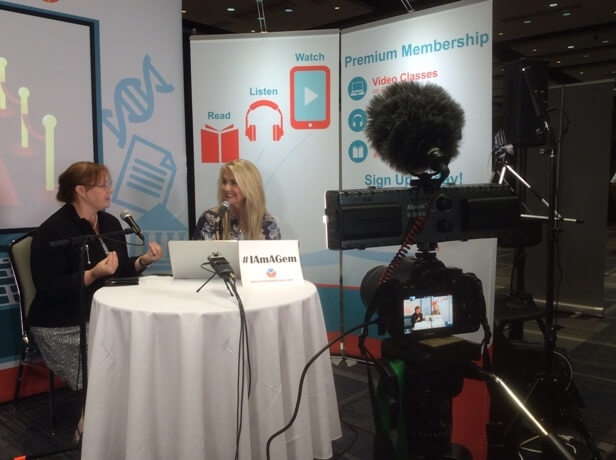
Genealogy Gems Podcast Episode 221 – Recorded at FGS
The Genealogy Gems Podcast
Episode #221
with Lisa Louise Cooke
Live from FGS 2018!
Lisa chats with a podcast listener, talks about vital records with Shannon Combs-Bennett and welcomes a drop-by guest, Daniel Horowitz of MyHeritage.com.
Episode highlights:
- Fantastic news from RootsTech;
- A great new resource from Library & Archives Canada;
- An update from Your DNA Guide Diahan Southard on MyHeritage DNA tools;
- The long-awaited conclusion of Project Lizzie.
LIVE FROM FGS!

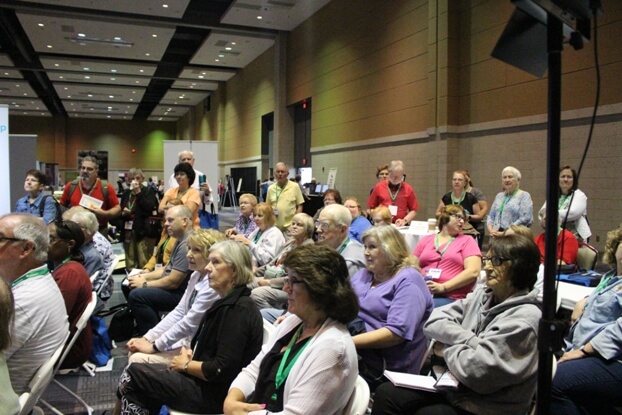
Lisa records the podcast in the exhibit hall with guest Shannon Combs-Bennett and a live studio audience
LIVE MAILBOX: Chatting with Jeannette
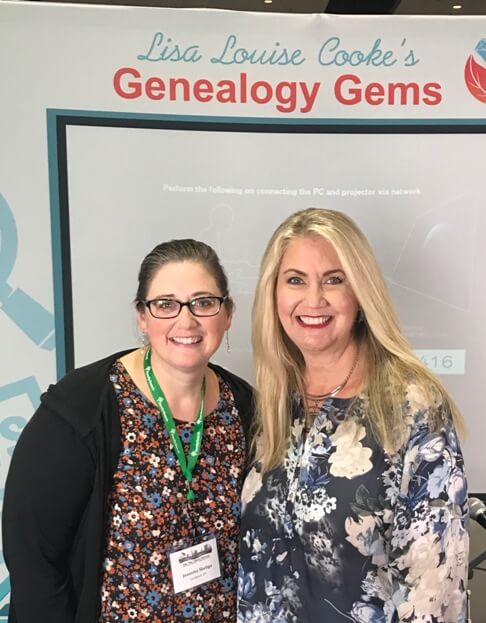
Jeannette from Niagara County Genealogical Society, shown here (left) with Lisa
The FGS conference supports the missions and activities of genealogical societies. Learn more about FGS and find a genealogical society near you here.
Genealogy Gems supports societies, too! Society memberships and reprintable articles for your newsletters. Go to the Societies dropdown menu on GenealogyGems.com:

If your society is interested in hosting Lisa Louise Cooke for a seminar, go to the Seminars tab and click Book Lisa.
INTERVIEW: Shannon Combs-Bennett on Vital Records

Learn more about using vital records in your research in the free Genealogy: Family History Made Easy Podcast, episode 4.
INTERVIEW: Daniel Horowitz, MyHeritage

As MyHeritage’s Genealogy Expert, Daniel Horowitz provides key contributions in the product development, customer support and public affairs areas. He holds board level positions at the Israel Genealogy Research Association (IGRA) and the International Association of Jewish Genealogical Societies (IAJGS) among others. Daniel served as teacher and study guide editor for 15 years for the family history project “Searching for My Roots” in Venezuela.
Join Daniel Horowitz and Lisa Louise Cooke at MyHeritage LIVE!
Who: Daniel Horowitz, Lisa Louise Cooke and MORE great presenters!
What: MyHeritage LIVE
Where: Oslo, Norway at the Radisson Blu Scandinavia hotel
When: November 2-4, 2018
It’s open to anyone who would like to learn more about MyHeritage – including subscribers, DNA customers, those with free basic accounts, and those who haven’t used MyHeritage yet but would like to find out more.
Tickets include entry to the Friday night reception, keynote speeches, all conference sessions, lunch and coffee breaks on Saturday and Sunday and entry to the exclusive MyHeritage LIVE party on Saturday night. Now through September 24, register for Early Bird discount price of €75.00. MyHeritage.com is the place to make connections with relatives overseas, particularly with those who may still live in your ancestral homeland. Click here to see what MyHeritage can do for you: it’s free to get started.

MyHeritage.com is the place to make connections with relatives overseas, particularly with those who may still live in your ancestral homeland. Visit www.MyHeritage.com
Subscribe to the free Genealogy Gems newsletter
to receive a free weekly email with tips, inspiration and money-saving deals. Click here to subscribe!
LIVE MAILBOX: Adrianne Keeps Connected with the Podcast
How to identify old cars in photographs
Savvy tips for identifying old photos: An Australian family on holiday in England
Genealogy Gems Premium members may also listen to an interview with Maureen Taylor, The Photo Detective, in Premium Podcast episode 141. She’s the author of Family Photo Detective, a must-have resource for identifying old photographs.
BONUS CONTENT for Genealogy Gems App Users
If you’re listening through the Genealogy Gems app, your bonus content for this episode is a short but inspiring story from someone who came to one of my classes and then went and found something cool on YouTube relating to her family’s employment with airline TWA….Don’t miss it! The Genealogy Gems app is FREE in Google Play and is only $2.99 for Windows, iPhone and iPad users.
Lisa Louise Cooke uses and recommends RootsMagic family history software. From within RootsMagic, you can search historical records on FamilySearch.org, Findmypast.com and MyHeritage.com.
Keep your family history research, photos, tree software files, videos and all other computer files safely backed up with Backblaze, the official cloud-based computer backup system for Lisa Louise Cooke’s Genealogy Gems. Learn more at https://www.backblaze.com/Lisa.
NEWS: RootsTech Goes to London
RootsTech will host an event in London from 24–26 October 2019 at the ExCeL London Convention Centre. Registration opens in February 2019. Find out more about RootsTech London 2019 at https://www.rootstech.org/London.
NEWS: The “Unconference” Experience
REGISTER TODAY: Genealogy Roots: The “Un-Conference Experience”
Lisa Louise Cooke, Diahan Southard, and Sunny Morton will share a stage on October 4-5, 2018 at the SeniorExpo in Sandy, Utah. (Psst: You don’t have to be a senior to attend!) Here’s the scoop—and a special registration discount!
Who: Lisa Louise Cooke, Diahan Southard, and Sunny Morton
What: Genealogy Roots: The Un-Conference Experience! at SeniorExpo
Where: Mountain America Expo Center (South Towne Expo Center), 9081 S. State St., Sandy, Utah
When: October 4-5, 2018, 9:00 am – 5:00 pm
THE ARCHIVE LADY: Library Archives Canada Co-Lab
The Library and Archives of Canada (LAC) has introduced a brand-new crowdsourcing opportunity for genealogists or anyone interested in records transcription: Co-Lab.
The LAC has put a call out for volunteers to be part of a collaborative project to transcribe, add keywords and image tags, translate content from an image or document and add descriptions to digitized images using “Co-Lab” and the new “Collection Search”. The more volunteers that participate in this project, the more accessible and usable the digital collection will become for everyone.
You can become a contributor in two ways:
Take on a “challenge” of images put together by experts at LAC
Use the new Collection Search to find materials that matter most to you, then enhance them. Anyone can now contribute to digitized images that are found while doing research.
The volunteer must register and create a user account so you can keep track of the records to which you have contributed. Once this free account is established, a volunteer can contribute as much or as little as they would like.
The “Challenges” are content put together under a theme. For instance, under the “Challenges” tab on the website you could choose to transcribe the “Correspondence between Sir Robert Borden and Sir Sam Hughes” The theme for this challenge is listed as “military heritage.”

Or another “Challenge” someone might choose could be “New France and Indigenous Relations” whose theme is listed as “Aboriginal Heritage.”

There are also new “Challenges” being posted to the site, so check back often.
Maybe you would like to contribute using Collection Search. The website describes how this tool works: “When you are conducting research using our new search tool and find images, you’ll see that you have the option to enable this image for Co-Lab contributions. After answering just a few short questions, you can enable an image found in Collection Search for Co-Lab use and transcribe/translate/tag/describe to your heart’s content.”
There is a short tutorial to get you started and show you the ropes. The launch of Co-Lab also introduces a new image viewer, which allows you to zoom in on different parts of the image or move around the image itself. This tool is useful when transcribing or adding keywords and image tags to describe all the small details. Every image in Co-Lab is subject to review by other members. If something is found to be incorrect or if you find something that is wrong, it can be marked as “Needs Review” for others to take another look and decide what is correct.
The best part about this new Library and Archives Canada tool is that every contribution by the volunteers benefits fellow genealogy researchers and improves records access. Every additional tag or translation becomes new metadata and is searchable within 24 hours of the transcriptions or tagging being done.
So, if you are like me and are eager to get as much genealogical and historical records online and transcribed, check into The Library and Archives of Canada’s new Co-Lab and Collection Search!
DNA: Improvements to MyHeritage DNA
with Diahan Southard, Your DNA Guide
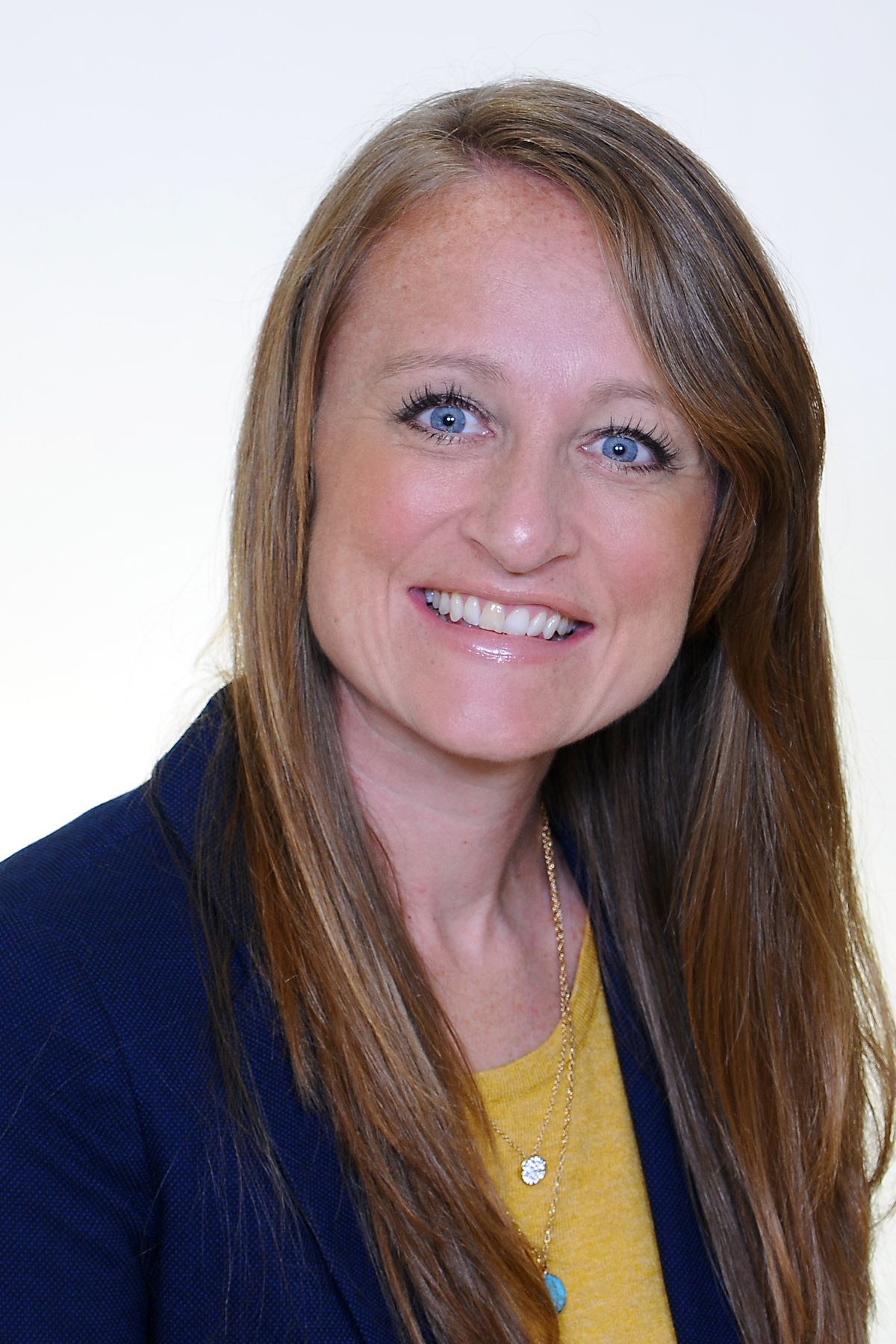
Improvements to MyHeritage DNA
GEM: The Conclusion to Project Lizzie
Click here to read Ron’s blog post announcing the satisfying conclusion of Project Lizzie. To learn more about Ron, stop over at storyhow.com, where Ron teaches business people how to tell stories.
PROFILE AMERICA: Picture This
PRODUCTION CREDITS
- Lisa Louise Cooke, Host and Producer
- Sunny Morton, Contributing Editor
- Diahan Southard, Your DNA Guide, Content Contributor
- Melissa Barker, The Archive Lady, Content Contributor
- Hannah Fullerton, Production Assistant
- Lacey Cooke, Service Manager
Download the Show Notes PDF in the Genealogy Gems Podcast app.
Disclosure: This page contains affiliate links and Genealogy Gems will be compensated if you make a purchase after clicking on these links (at no additional cost to you). Thank you for supporting this free podcast and blog!


